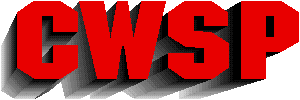


 January's Contest Tip
January's Contest Tip
Do you recall the painful experience of having a beautiful QSO run disappear almost instantly? Many times it's nothing more than the band changing. However, it can be often the result of a QRM caused by a station you can't hear. An open frequency does not always mean it is QRM-free on the other end. Try asking the question: "How clear is my frequency on your side?"
 February's Contest Tip
February's Contest Tip
Maybe you read the rules for many of the small contests in CQ each month (there are 12 different contests in this month's calendar) but never try them out. Specialized contests (especially state QSO parties from your state) are an excellent way to hone your skills for the next big one. Try them out!
 March's Contest Tip
March's Contest Tip
There are many factors to consider when trying to break a big pileup in a contest. One aspect sometimes forgotten is the way you call a station. If you sound like you really want to work someone (without getting carried away), you're more likely to beat the majority of stations that call with a more "layed-back" approach. Give it a try!
 April's Contest Tip
April's Contest Tip
Contest club newsletters are an excellent source for ideas and "what's happening" in contest circles. Consider subscribing to a couple--especially if your are geographically isolated from a club near your area--to get the latest information on RFI protection, computers in the shack, operating tips, etc.
 May's Contest Tip
May's Contest Tip
If you are a packet-assisted contester, always be sure to verify the callsign and exchange of the "spotted" station you are working. Many times a busted callsign has been spotted. Make the mistake appear on your screen -- not in your log!
 June's Contest Tip
June's Contest Tip
We often think about receiving antennas in terms of the 80 and 160 meter bands. Have you ever tried using a beverage (or similar antenna) on 40 meters? There have been countless times when a separate receiving antenna on 40 Meters has dramatically improved my signal-to-noise ratio, more than compensating for reduced signal strength levels. The bottom line is: improved copying ability. I've even heard of limited success on the higher bands. Give it a try!
 July's Contest Tip
July's Contest Tip
Want to know something that can help your contest score nearly as much as a big signal? For me, it's focus and utter concentration. Whether you're trying to lift a heavy weight in a gym or push a few more QSOs out of your station, the key is diligence and unabated attention to the task at hand. Consider another pastime you enjoy that requires intense concentration. If you apply the same techniques to contesting that you do in your other endeavor, your scores will climb--and without a single db of added signal strength.
 August's Contest Tip
August's Contest Tip
One of contesting's most difficult strategic decisions is to know when to stop calling a station in a pileup that you cannot work. Fortunately, most modern logging programs tell you specifically how many QSOs a new multiplier is worth. In the future, if your goal is to achieve the highest score possible, try to avoid wasted time calling an unworkable multiplier: a) for that 40th Zone, b) to obtain a clean sweep in the ARRL SS, c) out of sheer stubbornness that may make a nice contest QSO but a lower final score!
 September's Contest Tip
September's Contest Tip
Timing in big (or small) pileups is everything. By their very nature, the denser a pileup becomes, the harder it is to pull out callsigns--regardless of how good the operator is at the other end. A successful calling technique I use quite often is to wait a few seconds before calling with everyone else (SSB and CW). That slight delay and attentiveness to "sneaking-in" your call when others are catching their breath works time and time again! If only I had 25 cents for everytime a DX station has said to be in a pileup, "The Alpha Radio go ahead . . ." Using low-power in smaller contests to practice this technique will hone your calling skills even more for the big ones.
 October's Contest Tip
October's Contest Tip
Have you ever thought much about your shack's operating chair? I always found it odd that we could invest $10K+ in our equipment, yet use an abandoned $25 operating chair found at a yard sale. When you consider the time invested in contest operating, think about the advantages in score than can come from a comfortable seat. You can't quantify it, but you can be sure your score will go up with comfort!
 November's Contest Tip
November's Contest Tip
Try varying the phonetics you use in pileup calling. Sometimes a different word will help differentiate your call from the others. Sharp, piercing words are usually more effective. For example, GERMANY is probably better than GULF, or consider DENMARK instead of DELTA. As is so often the case in contesting, put yourself in the shoes of the operator you're calling.
 December's Contest Tip
December's Contest Tip
I've heard from so many people about sending speeds in CW contests that I thought it was worthy of mention in this month's contest tip. If you're an experienced CW contester, try taking the time to occasionally slow down. There may be a number of more casual participants who are waiting in the wings to call you. The key is they need to be able to copy your call sign. You may be doubly surprised to snag a rare multiplier once in a while too!

Back to 1992 |